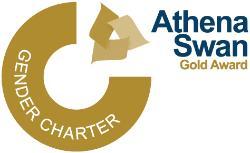An ECR reflects! (Moya Clancy)
Published: 7 June 2023
For our June 2023 "ECR reflects" we chatted to Dr Moya Clancy. Moya has a background in clinical psychology, and has worked across multiple services including Early Intervention for Psychosis, the Irish Prison Service, Older Adult Service (HSE) and Child and Adolescent Mental Health Service (HSE). Moya has particular expertise in trauma and psychosis, and now works as a Trial Co-ordinatior for the AVATAR2 Trial and Principal Clinical Psychologist in the NHS with Prison Healthcare
For our June 2023 "An ECR reflects" we chatted to Dr Moya Clancy about her role as an ECR. Moya has a background in clinical psychology, and has worked across multiple services including Early Intervention for Psychosis, the Irish Prison Service, Older Adult Service (HSE) and Child and Adolescent Mental Health Service (HSE). Moya has particular expertise in trauma and psychosis, and now works as a Principal Clinical Psychologist in the NHS with Prison Healthcare and Trial Co-ordinatior for the AVATAR2 Trial in Glasgow. AVATAR2 uses innovative technology to allow people who hear distressing voices (auditory hallucinations) to "speak" to a digital representation of the voice as part of therapy. Moya is also a co-lead of the social and communications working group for the SHW Athena Swan early career researchers. Catch up on May’s interview with Claire Hastie on the "Athena Swan in HAWKEYE" webpage.
Knowing what you know now, what advice would you give your former self, as an ECR starting out?
- Try not to compare yourself to colleagues from a more academic background. Your clinical training and skills bring a lot and you’ll learn that more as time goes on :)
- Grant applications CAN’T be written in one night – the limit DOES exist and you’re not in your teens or 20s anymore.
- Listen to your gut and find your people.
What is your favourite and least favourite part about working in academia?
Favourite
I love the creativity and curiosity in academia! Essentially we are wanting to understand why things happen and make a difference for people at an individual and societal level. My experience has also been that most folk I work with are thoughtful and values-driven people, who deeply care about what they do.
I also love the freedom and flexibility of academia. You can work from various locations and work with people from all over the world. I work well when I can work from different environments, which helps me get out of slumps/ruts (and stay caffeinated/supporting my local cafes!).
Least favourite
Lack of permanent contracts/job security and the amount of admin tasks and forms I fill out – sparks no joy but of course is important! I also don’t like that a lot of my tasks or role are done alone – I prefer working with others.
What are you most proud of from your career so far?
This is such a thought-provoking question that I probably should ask myself more! I recently did some teaching with a colleague with lived experience of psychosis which felt significant and meaningful. I think it’s so important to open doors to others and to empower and amplify the voices of those with lived experience. It was a privilege to be part of training future Clinical Psychologists and to have done this with my very inspiring Patient and Public Involvement colleague.
Do you have any go-to routines or habits that you find helpful for writing/reading/other research activities?
- Changing my environment if in a rut/slump e.g. get out of the house, go to the library or a cafe.
- Meeting with others for writing retreats.
- A good aul list!
How has the ECR experience changed since you first started working in academia?
I joined the uni during COVID and this is my first post in academia so a major change is being back in the office! I am loving seeing everyone in the CP and the swanky set up :)
What would you be doing if you weren’t working in academia?
I’d love to do some community engagement work using music somehow. I’d like to have trained as a music therapist or a choral conductor and somehow using music to build communities and cohesion. I know a clinical psychologist who has worked with communities in Cambodia in the 80s and 90s after the Khmer Rouge regime ended. I think music/art is a great way to communicate and bring people together and I could see myself out in countries/communities that need support.
I have always loved journalling and writing stories and personal reflective essays so maybe a journalist interviewing folk (for a more 2020 version of COSMO or "mizz") or a music reviewer.
I was also that teenager who was always in a band (ranging from indie electro to "screamo") so I would probably be the energetic bass or synth player of a band!
Read our previous interviews with ECRs
- May 2023 Claire Hastie
- Apr 2023 Kirsty Dunn
- Mar 2023 Michael Fleming
- Feb 2023 Paul McCrorie
Find out more about the aims and activities of the SHW Athena Swan ECR group
First published: 7 June 2023



